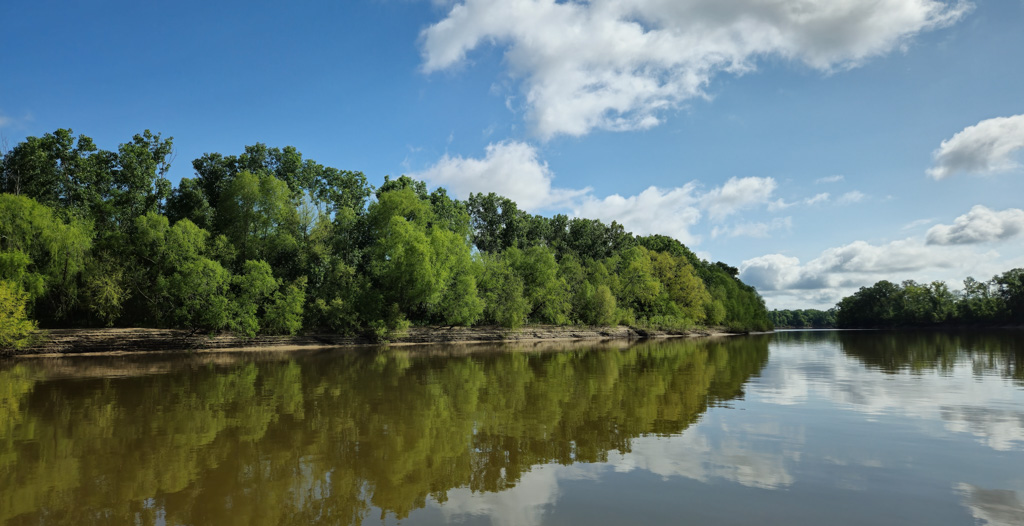Prestigious Science Journal Publishes USA Professors' Paper
Posted on June 4, 2024

A paper co-authored by three University of South Alabama professors titled “Safely Managing Alabama’s Mobile-Tensaw Delta” has been published by the prestigious journal Science.
Drs. Gabriel de Oliveira, John Lehrter and Sean Powers wrote the article, which addresses how the Delta’s ecosystem has faced significant degradation from logging, pollution and expanding urban areas. Sea-level rise and increased rainfall runoff, both related to climate change, also threaten the low-lying areas of the Delta with flooding, pollution and salinity intrusion.
“My co-authors and I are extremely happy with this article in Science and strongly believe this publication will change the way that the rest of the country, including policy makers, see the Mobile-Tensaw Delta,” said de Oliveira, assistant professor of marine and environmental sciences.
The article suggests that conservation programs should include public-private partnerships and incentives for private landowners, considering that more than 94 percent of Alabama’s forest land is privately owned.
“Our Delta is a unique Alabama treasure,” said Lehrter, professor of marine and environmental sciences. “Most of the issues causing problems in the Delta are problems emanating from Alabama and more locally, Mobile and Baldwin counties. Alabamians control the destiny of this system and its animals and plants.”
Understanding the Delta’s ecosystems and their responses to environmental changes will be key as students and researchers from South will be on the front lines of conservation efforts.
“Our goal is to have a vibrant program in the Delta that allows us to engage students in a one-of-a-kind ecosystem just 15 minutes from campus,” said Powers, director of the Stokes School of Marine and Environmental Sciences. “No marine and environmental sciences program can compete with our location and the access we can give students.”
The process of publishing in Science is a notable challenge due to its high standards and rigorous peer review process. One of the most cited and influential journals in the world, Science is a leading outlet for scientific news, commentary and cutting-edge research.
Through its print and online incarnations, Science reaches an estimated worldwide readership of more than 1 million.





